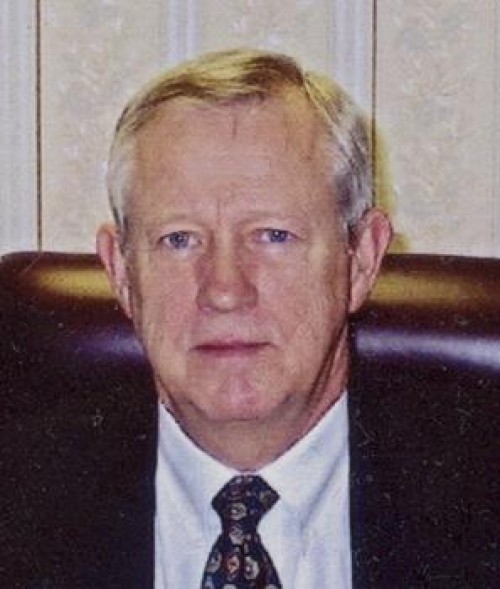Reynauld Songy
May 7, 2007Steve Collins
May 9, 2007“Who ever thought the kid from Morgan City would get a job with the FBI?”
— Morgan City Chief of Police Jim Christy, speaking of his 34-year FBI career.
In more than 35 years in the law enforcement field, Morgan City Chief of Police Jim Christy has experienced what many only watch in action-packed movies. Airline highjackings, mobsters, bank robbers and International Terrorism are areas the Morgan City native worked during his 34-year FBI career.
But how does this small-town man reach this prestigious law enforcement agency? The answer dates back to early 1965, nearly five months before Christy’s release from active duty in the U.S. Marines, when he and a friend discuss their futures:
Marine: “You’ll never guess what I just did.”
Christy: “No, I guess I won’t.”
Marine: “I talked to the FBI in Jacksonville, N.C., I filed an application with it. You ought to think about doing that. Really, you should do that.”
Christy: “OK. Well maybe. I’ll think about it.”
Although Christy’s familiar with the FBI, he has no prior law-enforcement experience. But following the completion of his active duty, Christy returns to Morgan City and pursues the idea.
“I said, ‘Well I’m going to try,'” Christy remembers. “I didn’t even know where the [nearest] FBI office was. I found out it was in Lafayette. I went in, and I talked to them. I told them I was interested, and I went through the process n took the test [and] had the interviews.”
Christy left Lafayette uncomfortable about his performance on the legal test and problem solving scenarios.
“When I walked out of there, I didn’t think I had really passed…” he recalls.
Christy returns home with no job offer. He’s only told he’s qualified. The waiting begins.
“The time kept going by,” Christy says. “Weeks seemed like months because I needed a job.”
Word finally comes. A telegram from the late J. Edgar Hoover, FBI director at the time. “You’re hired and you need to be in Washington, D.C,” it says.
The news surprises Christy: “Who ever thought the kid from Morgan City would get a job with the FBI?”
His first 16 weeks are spent in Washington learning about firearms, defensive tactics, paperwork and interviewing skills—aspects of a special agent’s job.
Following his training, Christy is assigned to the FBI’s Southern Illinois’ headquarters in Springfield. He later moves to the Belleville, Ill., residence agency before again moving north to the Des Moines, Iowa, office. During these first years, Christy works bank robberies and bank burglaries, kidnappings and stolen car and fugitive cases.
In 1969, the FBI transfers Christy to its St. Louis headquarters. He spends the next 15 years here. Originally, he investigates organized crime, but he later resumes working criminal cases.
In 1978, the FBI names Christy a supervisor of the St. Louis office where he focuses on organized crime. The appointments continue for Christy as he is named the U.S. South Central Region’s Drug Enforcement Task Force coordinator in 1980.
His climb in the FBI continues in 1984 when he returns to the FBI’s headquarters in Washington as a headquarter supervisor. Here, Christy begins working in the Civil Rights Department before moving to property crimes. During his time in the nation’s capital, he also observes field offices as a member of the inspection staff before moving to the International Terrorism Division. In International Terrorism, Christy supervises portions of the investigation into Pan American flight 103, which explodes over Lockerbie, Scotland, in December 1988. Libya, the country he oversees, is responsible.
“I didn’t actually go and work the case, but I knew a lot of what was going on,” he explains. “They sent agents from the Washington field office to Scotland, and they worked on putting the plane back together and [examining] the crime scene. Helping out with that was part of my responsibility.”
While Christy’s FBI career would have ended in 1996 due to the bureau’s mandatory retirement age of 57, he leaves the International Terrorism Division two years early. Christy: “I started thinking about retirement before I got to my 57th birthday, because I knew I wasn’t ready not to work at all anymore. I started looking around and was offered [a job] to work corporate security for a company in St. Louis, so I left.”
While he has served as Morgan City chief of police since 2002, Christy has not ruled out future law enforcement opportunities.
“Who knows? I still enjoy it…” he says.









